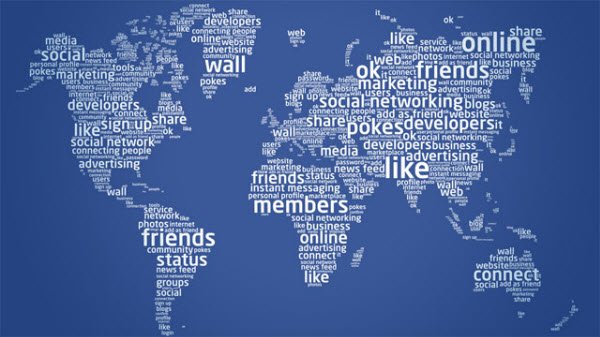
For this Blogpost, I interviewed my mom about her presence on Social media.
What social media platforms and apps they have used now and in the past?
“Umm, Currently I use Facebook the most, followed by WeChat and WhatsApp. In the past I didn’t use any Social Media.”
Do they use their real name(s)? Have they ever used aliases or created fake accounts? Why?
“Yes, I use my full name because it helps others find me. Especially my long lost childhood friends. I don’t use any other fake account or name because I don’t have time to keep up with multiple accounts and I don’t see any point of it for me to create a fake account.”
What different personas do they construct in each of these platforms and how do they relate to aspects of their experiences in life?
“I guess, I portray myself on Facebook as a family oriented mother, who really loves her three children. and same for WeChat.”
Do the digital personas they construct help them cope with the problems they face or do they create new problems? In what ways?
“I definitely think it helps because my friends and family back in India can keep up with what our family is up to and update on things happening in my life.”
After this interview I realized that the older generation seems to use Social Media similar to the younger generation. I use my Facebook same way as my mom but I mostly use it to keep up with current news similar to how I use twitter. But sharing of photos for me is done on Instagram but the purpose is same, where it is to show people distanced from me what I am up to.
As stated by Turkle in Life on the Screen: Identity in the Age if the Internet, he suggests that people use the digital interface to vent out their real world problems so it can be a form of therapy. “In my interviews with people about the possibility of computer psychotherapy, a ventilation model of psychotherapy came up often as a reason why computers could be therapists. In the ventilation model, psychotherapy makes people better by being a safe place for airing problems, expressing anger, and admitting to fears” (Turkle, 199). I witness this use of computer Psychotherapy on my timeline often. Whether it is someone complaining about slow walking people in the streets or their frustration on a manager who can not seem to provide them with a raise, this is all a form of what Turkle calls computer psychotherapy. They are expressing their views on things/someone online because their is far less consequences.
In connection, author of Digital Media and Society, Adrian Athique, suggests that Social media and the internet should be considered more than just a platform of information exchange but rather as, “conduits for language, as technological-sensory interfaces, as transmitters of ideology, as sites of debate and as sources of pleasure” (Athique, 79).
As of today we all know of that one person who seems to use social media to express his/her feelings and vent out whatever he/she might be thinking. One that we all know is Donald Trump. According to this Article, Trump has tweeted multiple times on the allegations on Barack Obama tapping his phone during the election. Whether this allegation upholds or not, we all seem to use social media today as our personal therapist, who is accessible 24/7 a day.
- Do you think Venting your personal problems on Social Media is okay or should it be kept to one self? and how often do you vent online?
- Do you believe creating multiple personas online can lead to a positive outcome or negative?
I think using social media to vent your problems has it’s pros and cons. For one, you may have some very supportive friends who will listen and give advice. But on the other hand, you may also have people who criticize you, making you feel even worse. I used to vent online a lot when I was younger, I never spilled my problems in detail but I would use subliminal quotes instead. I went on Twitter rants a lot and I had a lot of support for it. My followers would reach out to me and come to find out most of them were going through most of the same things I was. In my situation, I used social media and my own problems as a way to reach other people, which worked in my favor.
You bring up a really good point on psychotherapy, but I do believe that private matters should be kept private. When I see people air out their dirty laundry on Facebook, I feel like it is quite disrespectful to whomever they are talking about. That being said, it is quite cathartic to talk to a friend in quiet. So it should only be a matter of time before computer can start to talk to you about your problems. I also think it is wise to display your different personas in moderation. Once you start thinking about becoming an entirely new person in the digital world/MUD, it can only lead to negative results in the real world.
Venting personal problems on social media is a tricky topic. For me personally I’ve never post any personal problems or opinions on social media. If I use social media it to talk with friends who are far away or to post photos that I have no space for on my phone. With venting these days sometimes it can become viral and the issue can be solved. But other times it can be negative and break apart relationships and it is the same with personas. The can promote personal expression but also disconnect people from each other.